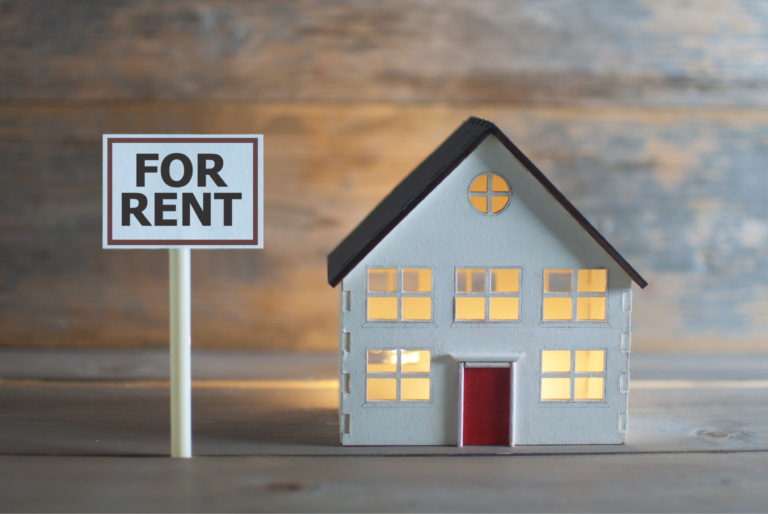Renting out a home in an HOA community can be a smart investment — especially in high-demand areas like Sammamish and Issaquah, where well-kept neighborhoods and top-rated schools attract stable, long-term tenants.
But managing a rental within a homeowners association (HOA) comes with a different set of rules, responsibilities, and potential complications. From lease restrictions to tenant compliance, investors need to go beyond standard landlord knowledge to avoid fines, friction, or legal trouble.
In this blog, we break down what it really means to manage a rental property in an HOA community — and how to protect your investment while keeping everyone (from the board to your tenants) on the same page.
Key Takeaways:
- HOAs in Sammamish and Issaquah may limit the number of rental units allowed in the community. (Rental Cap)
- Landlords are still responsible for tenant compliance with HOA rules — even if they weren’t the ones who broke them.
- Lease terms, parking rules, pet policies, and move-in/move-out procedures are often subject to HOA oversight.
- Communication with both the HOA and the tenant is key to smooth management.
- Professional property management is especially helpful in HOA communities where oversight and coordination are ongoing.
Why Rent in an HOA Community?
HOA-managed neighborhoods in Sammamish and Issaquah tend to be clean, quiet, and highly desirable — which makes them appealing to long-term renters.
Key benefits of HOAs for investors:
- Well-maintained common areas that attract higher-quality tenants
- Architectural standards that protect property values
- Amenities like pools, walking trails, playgrounds, and clubhouses
- Stable, family-friendly communities near top schools (like Skyline, Eastlake, or Issaquah High)
If your rental is in an HOA neighborhood, you’re likely to draw higher rents and longer tenancies — but only if you stay compliant and handle the added complexity well.
Understanding HOA Rules and Rental Restrictions
Not all HOAs are landlord-friendly. In fact, many HOAs in Sammamish and Issaquah limit rentals outright, or require advance approval before leasing your unit.
Common rental-related HOA restrictions include:
- Rental caps (e.g., only 10–20% of units can be rented at any given time)
- Minimum lease lengths (often 6 or 12 months — short-term rentals are usually prohibited)
- Approval process for new tenants or lease agreements
- Background check requirements that go beyond your own screening
- Move-in/move-out fees or damage deposits required by the HOA
Pro tip: Always get a copy of the CC&Rs (Covenants, Conditions & Restrictions) and Rules and Regulations from the HOA before listing your property. Don’t rely on what your neighbor told you — these documents change, and ignorance won’t protect you from fines.
Your Tenant, Your Responsibility
One of the most common mistakes we see is landlords assuming that once a lease is signed, they’re off the hook. That’s not how it works in HOA communities.
If your tenant:
- Leaves trash out
- Parks in the wrong spot
- Paints the front door without approval
- Misses yard maintenance requirements
You — the property owner — are still responsible.
And in most cases, the HOA will fine you directly, not the tenant. That means staying proactive is key.
Tips for Managing Rentals in HOA Communities
Here’s how to stay on top of HOA requirements while keeping your property (and your reputation) in good shape.
1. Disclose All Rules in the Lease
Include a copy of the HOA rules and regulations with your lease agreement, and require your tenant to acknowledge receipt and agree to follow them.
At SJA, we always include an HOA addendum that:
- Confirms tenant responsibility for fines
- Lays out expectations around landscaping, trash, pets, noise, and more
- States that HOA violations are lease violations
2. Communicate with the HOA Early and Often
Whether it’s a new tenant, a move-in date, or an exterior change (like repainting or adding a satellite dish), give the HOA a heads-up.
This helps prevent misunderstandings and shows the board you’re a responsible owner. If they see you’re proactive, they’re much more likely to work with you — not against you.
3. Stay Ahead of Maintenance
Some HOAs have strict guidelines for property upkeep — including lawn care, roof maintenance, or even window treatments. If your tenant isn’t keeping up, the HOA may step in.
We recommend quarterly drive-by inspections and fast follow-up on any maintenance or aesthetic concerns. This helps prevent costly fines and tenant frustration.
4. Understand Insurance Requirements
Some HOAs require proof of renter’s insurance, and most require you to carry specific liability coverage as the owner. Make sure your policy meets their standards — and check whether your tenant’s coverage is valid and current.
5. Keep Contact Info Updated
Most HOAs require a current owner address and contact for emergency situations. If you’re using a property manager (like SJA), let the HOA know we’re the point of contact. We manage communication, maintenance coordination, and compliance so you don’t have to.
Sammamish & Issaquah: What’s Different?
While HOAs vary by community, here’s what we’re seeing in the local market:
Sammamish
- Newer developments like Klahanie, Trossachs, and The Crossings at Pine Lake have detailed rules and strong enforcement.
- HOA fees often cover landscaping and exterior upkeep, which can be a benefit — but come with tighter oversight.
- Expect HOA boards to require formal notice when a unit is rented, and sometimes approval of tenant info.
Issaquah
- Downtown Issaquah townhome HOAs often have rental caps and strict pet policies.
- In Issaquah Highlands, there are layered associations (master + sub-HOAs) which require extra coordination.
- Newer condos near Gilman Village or Grand Ridge Plaza often restrict short-term rentals and require formal tenant registration.
If you’re unsure about your community’s requirements, contact your HOA directly — or talk to a local property manager who already works with them.
The Value of Professional Property Management in HOA Communities
Managing an HOA rental requires more coordination, more oversight, and more communication than a standard rental — especially when multiple parties are involved.
At SJA Property Management, we’ve handled hundreds of rentals in HOA communities across Sammamish, Issaquah, and the Eastside.
Here’s how we help:
Review and interpret HOA rules for your property Communicate directly with the HOA on your behalf Add HOA clauses to leases and enforce compliance Handle tenant education and violation responses Coordinate move-ins, maintenance, and insurance verifications
HOA communities in Sammamish and Issaquah can be incredibly rewarding places to own rental property — but they require a thoughtful, hands-on approach. The added oversight from HOAs isn’t a bad thing — it protects neighborhood quality and property values — but it does add another layer to the management process.
If you’re not set up to stay on top of rule changes, lease clauses, or compliance issues, a professional property manager can make a big difference.
Let SJA Property Management take the lead, so you can enjoy the benefits of your investment without the added stress of HOA headaches.
Ready to Simplify Your HOA Rental?
Contact us at sjapm.com or schedule a FREE consultation to discuss your property. We’ll review your HOA requirements and put a custom plan in place to manage your rental — the right way.
Disclaimer:
This content is provided for general informational purposes only and does not constitute legal advice. For legal interpretation of your HOA’s CC&Rs, consult an attorney or contact the association directly.






